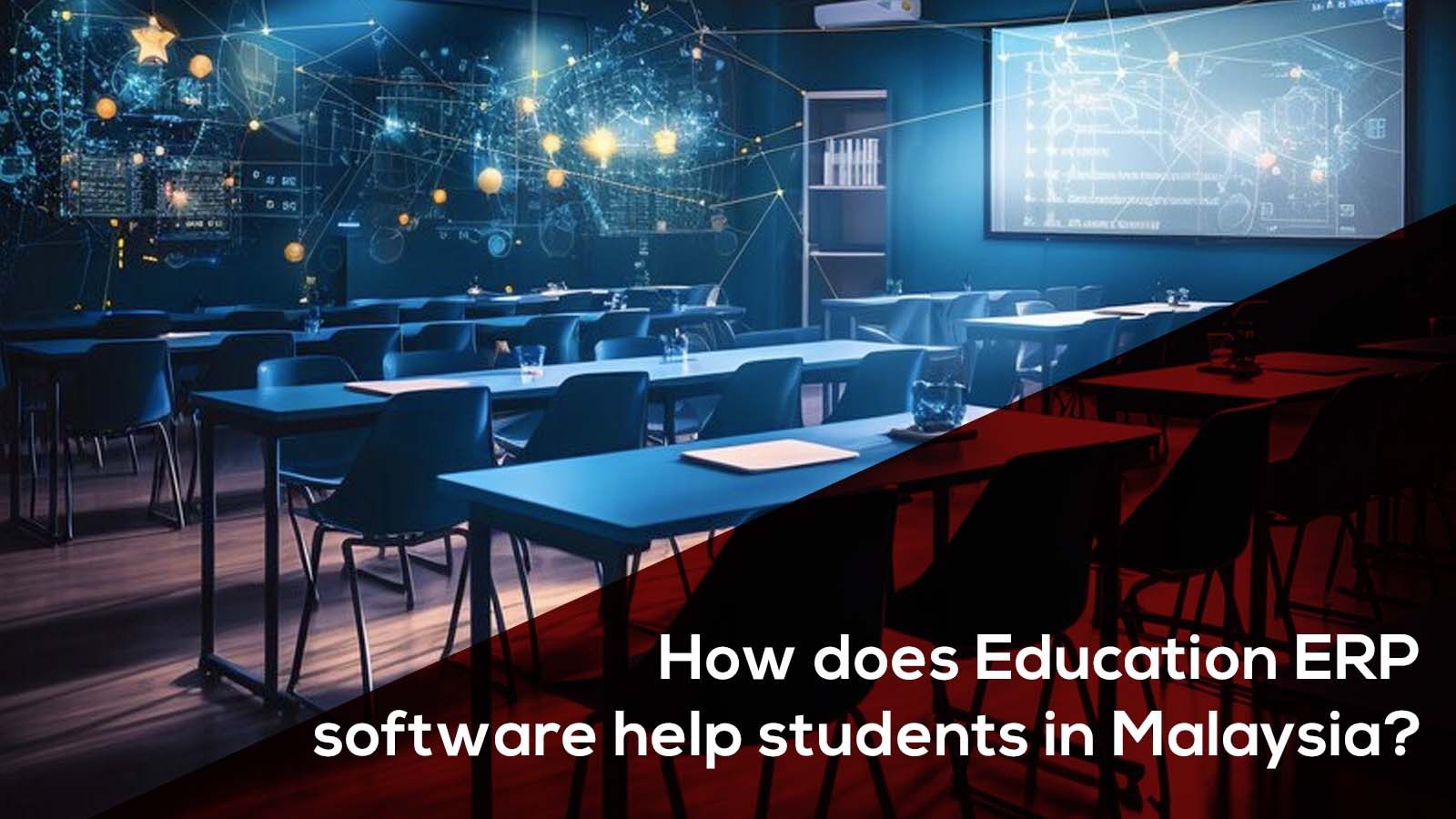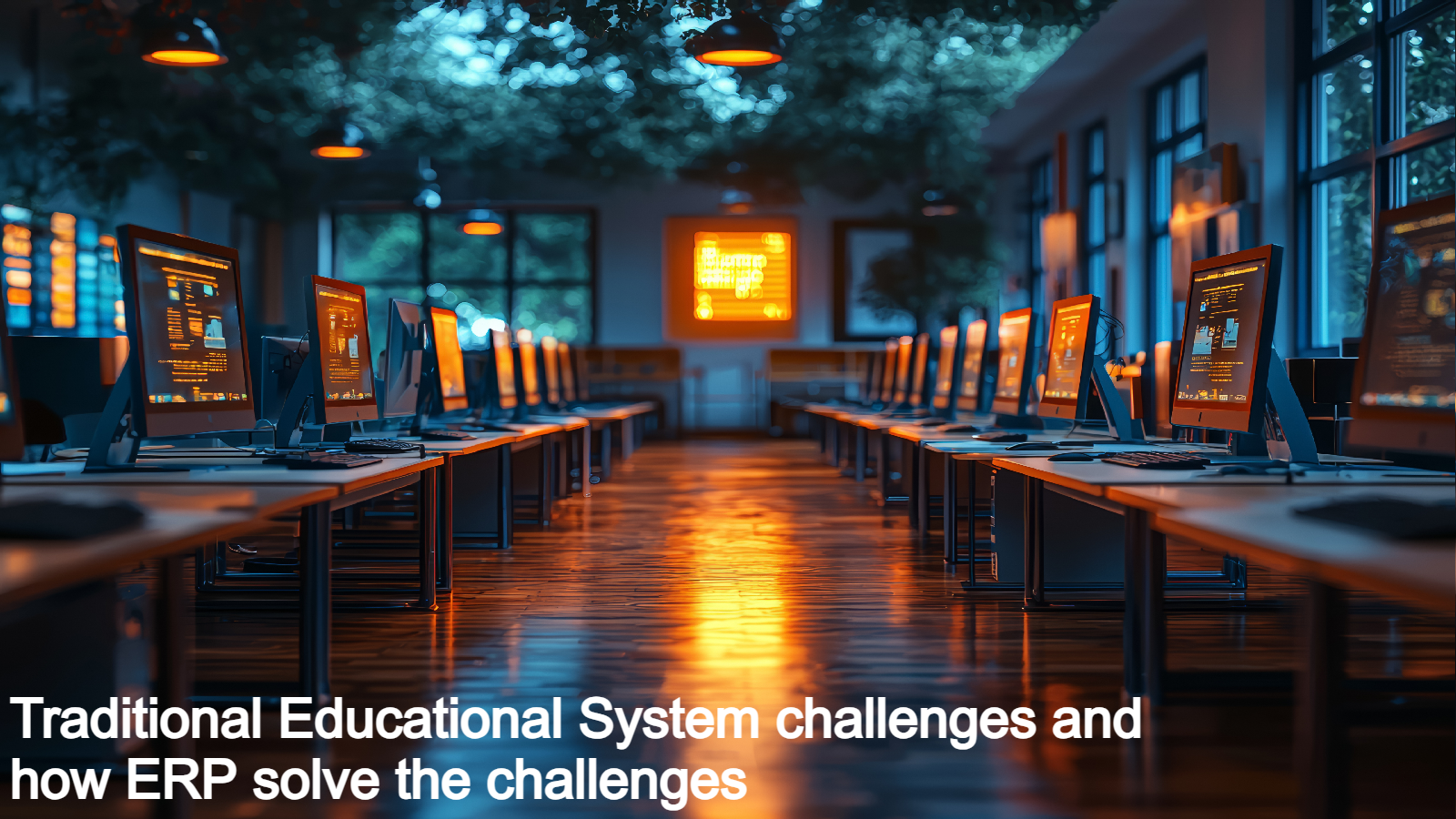Education ERP Software for Students
Introduction
Education ERP software has revolutionized the educational landscape, bringing efficiency and effectiveness in managing educational institutions. In Malaysia, utilizing ERP software in schools and universities has streamlined administrative processes and significantly benefited students.
Let’s look into the different ways Education ERP software is transforming the educational experience for students in Malaysia.
Features of Education ERP Software
Student Information Management
One of the fundamental features of Education ERP software is the efficient management of student data. This ensures that accurate information is accessible at the click of a button, facilitating smoother administrative processes.
Attendance Tracking
Gone are the days of manual attendance. With ERP systems, attendance tracking becomes automated, reducing errors and providing real-time data on student attendance.
Grade and Assessment Management
Education ERP software simplifies the grading process, allowing educators to input, calculate, and analyze grades effortlessly. This feature not only saves time but also enhances accuracy in assessing student performance.
Benefits of Education ERP Software for Students in Malaysia
Improved Communication
Education ERP systems enable seamless communication between students, teachers, and parents. This is particularly beneficial in Malaysia, where diverse cultural and linguistic backgrounds may cause communication challenges.
Access to Resources
ERP software provides students in Malaysia with easy access to educational resources such as question papers, class notes, journals, library books, etc. digitally, going past geographical barriers. This inclusivity is crucial in ensuring that all students have equal learning opportunities.
Personalized Learning Experiences
Through data analytics, Education ERP software tailors learning experiences to individual student needs. This personalized approach caters to diverse learning styles, fostering a more effective educational journey.
Mobile Accessibility
Some ERP software providers such as Elvis Education ERP offer mobile apps for convenience and easy access. Students can scan a QR code for attendance, obtain learning materials, join classes, and get quick details, all on the go.
Challenges and Solutions
Integration Issues
The implementation of Education ERP software may face challenges in integrating with existing systems. However, strategic planning and expert guidance can reduce these issues.
Training and Adoption Hurdles
Ensuring that teachers and staff are proficient in using the ERP system is essential. Comprehensive training programs can overcome adoption hurdles and maximize the benefits of the software.
Customization for Local Needs
Adapting ERP software to the specific needs of Malaysian educational institutions may require customization. Collaboration between software providers and stakeholders is key to addressing this challenge.
Future Trends in Education ERP Software
Technological Advancements
As technology evolves, so does Education ERP software. The incorporation of artificial intelligence and machine learning is anticipated to further enhance the capabilities of ERP systems in Malaysia.
Integration with Emerging Technologies
The future holds possibilities for integrating ERP software with emerging technologies such as virtual reality and augmented reality, creating immersive learning experiences for students.
Enhanced User Experience
User experience is paramount in the development of Education ERP software. Future versions will likely focus on creating interfaces that are not only functional but also highly intuitive for users in Malaysia.
Success Metrics
Measuring the Impact on Student Performance
Measurable metrics, such as academic achievement and graduation rates, serve as indicators of the impact of Education ERP software on student performance in Malaysian institutions.
Assessing Administrative Efficiency
Efficiency gains in administrative processes, such as reduced errors, quicker processing time, and resource optimization, provide proof of the benefits of ERP implementation.
Conclusion
Education ERP software is a transformative force in Malaysian education. From enhancing communication to streamlining administrative processes, the benefits are manifold. As technology continues to advance, the future holds even greater possibilities for optimizing the educational experience for students in Malaysia.
Frequently Asked Questions
What is Education ERP software?
Education ERP software is a platform designed to integrate and manage various administrative and academic functions within educational institutions. It centralizes data, automates processes, and facilitates communication among different departments, creating a more organized and connected educational ecosystem.
How does Education ERP software contribute to improving administrative efficiency in Malaysian educational institutions?
Education ERP software streamlines administrative tasks such as admissions, enrollment, fee management, and examination processes. Automation reduces manual workload, minimizes errors, and accelerates administrative processes. In Malaysia, this efficiency translates to quicker response times, smoother operations, and a more effective allocation of resources in educational institutions.
In what ways does Education ERP software enhance communication between students, faculty, and administration in Malaysia?
Education ERP systems facilitate seamless communication through integrated platforms. Students, teachers, and administrators in Malaysia can use the software to exchange information, share updates, and collaborate on academic and extracurricular activities. This enhances transparency and ensures that everyone involved in the educational process stays well-informed and connected.
How does Education ERP software contribute to personalized learning experiences for students in Malaysia?
Personalized learning is a key benefit of Education ERP software in Malaysia. By analyzing student data, educators can tailor their teaching approaches, recommend specific learning resources, and provide targeted support, fostering a more personalized and effective learning experience.
What impact does Education ERP software have on student engagement and participation in Malaysia?
Education ERP software often includes features such as online forums, collaborative tools, and interactive modules that promote student engagement. In Malaysia, this technology encourages active participation, discussion, and collaboration among students, creating an interactive learning environment that goes beyond traditional classroom settings.
How does Education ERP software support the assessment and evaluation of student performance in Malaysian institutions?
The software provides a centralized platform for managing and analyzing student data, including grades, attendance, and assessment results. This streamlined approach to data management allows educators in Malaysia to identify trends, measure progress, and implement targeted interventions when necessary.
Is Education ERP software secure, and how does it address data privacy concerns in Malaysian educational institutions?
Education ERP systems prioritize data security and privacy. They implement features like role-based access controls, encryption, and regular security audits to safeguard sensitive student and institutional data, ensuring compliance with data protection laws.
What training and support are available for educators and administrators during the implementation of Education ERP software in Malaysia?
Reputable Education ERP providers offer training programs for educators and administrators in Malaysia. Ongoing support is also provided to address any issues and ensure a smooth transition to the new system, fostering a positive user experience.
What measurable outcomes and improvements can educational institutions in Malaysia expect after implementing Education ERP software?
Education ERP software in Malaysia has demonstrated significant improvements in administrative efficiency, student performance, and institutional effectiveness. Institutions can expect streamlined processes, enhanced communication, data-driven decision-making, and an improved learning experience, contributing to the advancement of the Malaysian education system.








